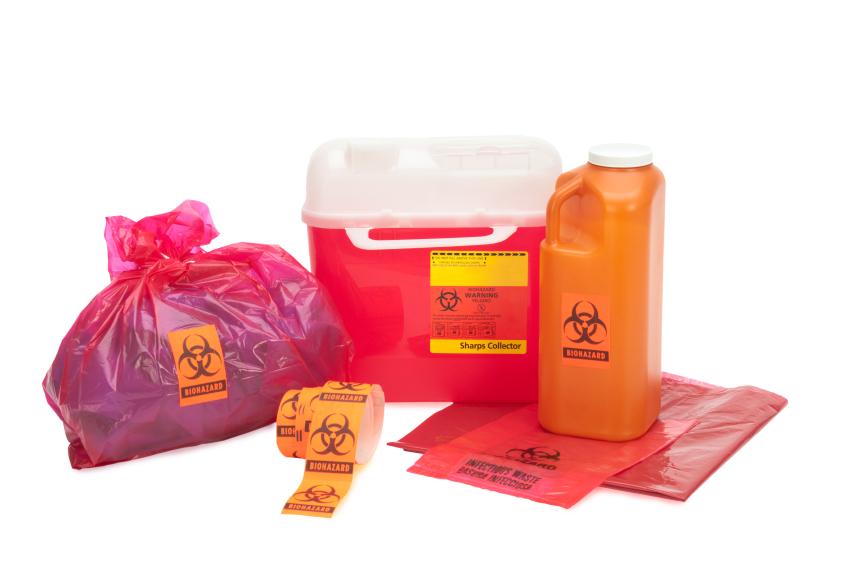Professional Solutions for Health: Revealing the Medical Waste Removal Service Advantage
Professional Solutions for Health: Revealing the Medical Waste Removal Service Advantage
Blog Article
Exploring Different Garbage Disposal Options for a Cleanser Environment
In the search of a cleaner environment, the monitoring of waste disposal has emerged as an important centerpiece for lasting growth. With a plethora of garbage disposal options offered, varying from traditional garbage dump approaches to ingenious waste-to-energy technologies, the choice of how we manage our waste has far-ranging effects for our earth's health. By analyzing the different techniques and methods employed in reusing, composting, incineration, landfill administration, and waste-to-energy procedures, a much deeper understanding of their impacts and efficiency can be acquired. The quest for optimal waste disposal methods that focus on ecological conservation while fulfilling the demands of an expanding population remains a pushing problem in today's world.
Recycling Approaches
Implementing reliable reusing methods is important in minimizing waste and promoting sustainability in our setting. Recycling includes the process of transforming waste materials right into recyclable challenge avoid unnecessary disposal. One of the most usual recycling methods is material recuperation, where materials like paper, metal, plastic, and glass are collected, sorted, and refined to create new items. This procedure not only preserves natural deposits however additionally reduces power intake and greenhouse gas exhausts connected with generating brand-new materials from square one.
One more vital recycling method is composting, which involves disintegrating natural waste like food scraps and yard trimmings right into nutrient-rich soil. This process not only draws away organic waste from garbage dumps yet additionally generates an important source for horticulture and farming. Furthermore, upcycling is an imaginative recycling approach that entails changing old or thrown out products right into products of higher top quality or value. By including these numerous reusing methods into our waste monitoring techniques, we can significantly reduce our environmental footprint and move in the direction of an extra sustainable future.

Composting Strategies
Effective waste management methods, such as reusing methods, pave the means for a cleaner environment, and now, changing the focus to 'Composting Techniques', we explore lasting methods to decompose organic waste for ecological advantage. medical waste disposal.
Composting is a natural procedure that changes organic waste, like food scraps and yard trimmings, into a nutrient-rich dirt change. The secret to effective composting depends on creating the ideal balance of environment-friendly products, such as fruit and vegetable scraps, and brown materials, like dried branches and fallen leaves. These products decompose with the assistance of microbes, damaging down the waste right into valuable compost.
There are different composting techniques available to suit different needs. Conventional yard composting involves layering organic products in a container or stack and routinely turning the mix to aerate it. Vermicomposting, on the other hand, uses worms to break down raw material right into garden compost (click here). For those with restricted area, indoor composting systems offer a hassle-free remedy. By making use of composting strategies, we can decrease the amount of waste sent to garbage dumps while producing a beneficial item for enriching soil and supporting plant growth.
Incineration Cons and pros
Incineration, as a waste disposal approach, offers both benefits and downsides that warrant cautious consideration in the world of lasting waste management practices. On the positive side, incineration can considerably decrease the quantity of waste, decreasing the requirement for garbage dump space and potentially lowering greenhouse gas discharges. Incineration also permits the healing of energy through the generation of power or warm, adding to source healing. Furthermore, the process can be utilized to destroy unsafe substances, offering a secure technique for managing specific kinds of waste that may pose risks to public health and the atmosphere if left without treatment.
In addition, the high first financial investment and operational prices of incineration facilities posture economic challenges, making it a less economical alternative contrasted to other waste monitoring approaches. Cautious surveillance and policy are vital to alleviate these adverse influences and maximize the advantages of incineration as component of an extensive waste administration method.
Land Fill Monitoring Strategies
Garbage dumps play an essential role in waste management and environmental conservation by offering a containment system for the disposal of strong waste products. Effective land fill administration methods are vital to mitigate environmental impacts and guarantee the long-lasting sustainability of these waste disposal sites. One crucial technique is correct waste compaction to optimize the usage of offered area within the landfill (click here). By condensing the waste, the quantity is decreased, allowing for even more waste to be accommodated gradually.
Additionally, the implementation of daily cover techniques is vital in reducing smells, preventing litter, and lowering the tourist attraction of pests. Treatment the disposed waste at the end of each day aids to include odors and stop potential ecological contamination. Furthermore, the monitoring of landfill gas emissions and leachate levels is crucial in guaranteeing that ecological requirements are fulfilled which any type of prospective risks to surrounding ecosystems are reduced.

Waste-to-Energy Technologies
Among the ingenious approaches to squander administration includes using Waste-to-Energy technologies to transform strong waste right into useful power sources. Waste-to-Energy (WtE) technologies incorporate a variety of processes that intend to extract energy from waste products with thermal, chemical, or biological methods. This conversion procedure not only reduces the quantity of waste that ends up in land fills but additionally creates valuable energy resources such as electricity, heat, or biofuels.
Incineration involves melting waste at high temperatures to produce warm and electricity. Gasification converts waste right into a syngas, which can be used for power generation or chemical production.
Carrying out Waste-to-Energy modern technologies can assist mitigate environmental problems related to standard waste disposal techniques while at the same time providing an eco-friendly power source. Nonetheless, mindful factor to consider has to be given to exhausts control and making sure the sustainability of feedstock materials for these innovations to be genuinely helpful for a cleaner atmosphere.

Final Thought
In conclusion, exploring numerous waste disposal alternatives such as recycling, composting, incineration, garbage dump management, and waste-to-energy modern technologies is essential for promoting a cleaner atmosphere - click here. Each technique has its very own benefits and difficulties, however by making use of a mix of these approaches, we can work in the direction of reducing the amount of waste that ends up in land fills and eventually add to a much more sustainable future for generations to come
With a wide variety of waste disposal alternatives offered, varying from standard land fill methods to innovative waste-to-energy innovations, the selection of exactly how we manage our waste has far-ranging ramifications for our world's wellness. medical waste removal near me.Incineration, as a waste disposal technique, presents both benefits and negative aspects that merit careful consideration in the world of lasting waste monitoring methods.Garbage dumps play a vital function in waste management and environmental conservation by offering a control system for the disposal of strong waste products. By compacting the waste, the quantity is decreased, allowing for even more waste to be fit over time
One of the ingenious strategies to waste administration involves harnessing Waste-to-Energy technologies to transform solid waste right into useful power resources.
Report this page